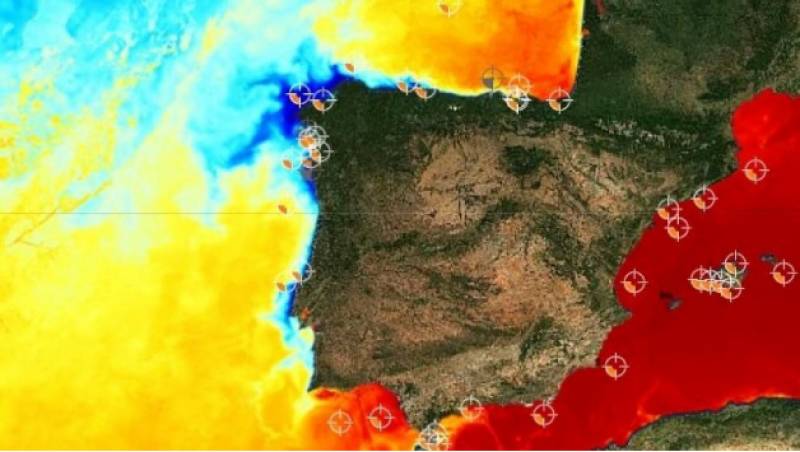article_detail
Date Published: 04/08/2022
ARCHIVED - Mediterranean sea boils in maritime heatwave and tops 30 degrees
ARCHIVED ARTICLE
The coastal waters of Spain are currently more than 6 degrees warmer than usual

The climate crisis is not only resulting in sweltering heatwaves and scorching temperatures on land, but is also heating up the world’s oceans, and nowhere is this more apparent than in Spain, where the Mediterranean Sea and Mar Menor have touched 30ºC in recent days.
On July 25, the buoy located in Cabo de Gata, in Almería, reached almost 28ºC, while the waters off the coast of Valencia registered 27ºC. Last week, the Mar Menor Monitoring Committee reported temperatures of 31.25ºC, the highest value since 2016.
Mediterranean heatwaves will become more frequent
Óscar Esparza, doctor in Biology and coordinator of WWF Marine Protected Areas in Spain, explained that this temperature increase is “anomalous and exceptional, both in terms of intensity, extension and duration”. If the Mediterranean Sea is stewing at 30ºC, this is an incredible 6.2ºC above its usual temperature.
According to the meteorologists, the warming of Spain’s oceans is a process that dates back to the 1980s, when we first realised that greenhouse gases produced by humans were contributing to climate change.
Since it’s an ongoing phenomenon, it’s very likely that new temperature records will be reached each year going forward: between 1980 and 2022, the sea has warmed by 1.4ºC while the land temperature has only increased by 0.7ºC; therefore, the Med has heated up twice as much as the air in the last 40 years.
As for the Mar Menor, the experts believe that it is a reflection of what is happening in the Mediterranean, but with one major aggravating factor: contamination by the nitrogenous fertilisers that are dumped into the water from nearby agricultural land.
The consequences
Just like periods of extreme heat on land, marine heatwaves also have consequences, and meteorologists firmly believe that the “rise in temperatures puts the Mediterranean Sea at risk,” since it is “one of the most sensitive areas on the planet to global warming.”
Everything indicates that the summers will continue getting warmer, which will inevitably lead to more tropical nights between May and October, as well as an increase in cold drops or DANAs and torrential rains.
As the water heats up, the WWF expert predicts that the oceans will become “a breeding ground for the proliferation of jellyfish and the arrival of invasive species that alter the balance of the ecosystem”, which sadly has already begun. At the same time, there is a very real possibility that key species will be wiped out in “mass mortality episodes,” wreaking havoc with the biodiversity of the environment.
Image: Puertos del Estado
Loading
Sign up for the Spanish News Today Editors Roundup Weekly Bulletin and get an email with all the week’s news straight to your inbox
Special offer: Subscribe now for 25% off (36.95 euros for 48 Bulletins)
OR
you can sign up to our FREE weekly roundup!
Read some of our recent bulletins:
Discount Special Offer subscription:
36.95€ for 48 Editor’s Weekly News Roundup bulletins!
Please CLICK THE BUTTON to subscribe.
(List price 3 months 12 Bulletins)
Read more stories from around Spain:
Contact Spanish News Today: Editorial 966 260 896 /
Office 968 018 268
























